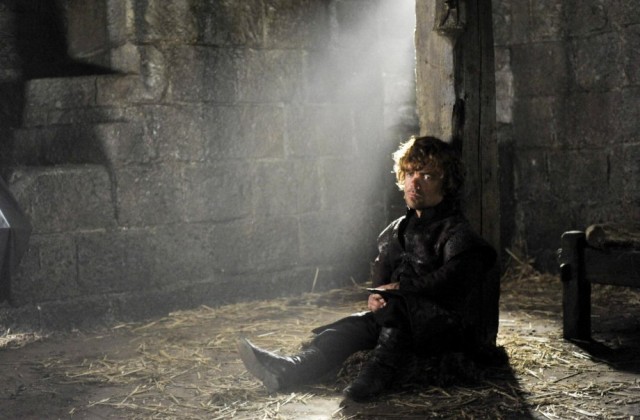Beyond the Wall: Smash the beetles! Smash ‘em!

‘Game of Thrones’ returned with a bang this week, bringing big moments usually reserved for the last two episodes of a season. The “small” moments were pretty damn good, too. Spoiler Alert: remember, Beyond the Wall is for book readers.
Game of Thrones returned from it’s annual Memorial Day week off, delivering an incredible episode. Jorah? Ejected from the friendzone. Mole’s Town? Raided. Missandei’s innocence? Lost (Well, a little). Ramsay? No longer a (recognized) bastard. And the bout between the Mountain and the Viper lived up to it’s billing. It was big. It was brutal. And it was the ongoing Princess Bride reference it was always intended to be.
A new piece of material introduced into the show had book readers and show watchers alike scratching their heads. The conversation between Jaime and Tyrion Lannister before the battle that would determine the later’s fate was more than a bit of a swerve. We were all champing at the bit to see the showdown … what was this extended monologue? But that conversation, as much of a non-sequitur as it might have seemed, was a bit of a microcosm of one of the series’ central themes.
Bob: I guess Storm of Swords was so chock full of great moments, that the producers couldn’t wait until episode nine to start the big shocks like they normally do. As if Lysa’s “suicide” weren’t shocker enough, we also got the battle between the Mountain and Oberyn before the penultimate episode of the season (and I think, breaking with tradition, the finale this year will have even more shocking moments than episode nine). It was a couple of the smaller moments in the episode this week that really stuck out to me.
My favorite moment had to be Arya’s reaction (and the Hound’s) to the news that her aunt had died. It was such a perfect spot of writing, highlighting both characters as well as the absurdity and cruelty of Westeros. Sorry Arya, everyone you are related to is dead or missing, but at least the Hound’s plans are fucked!
Ivey: I loved that moment as well. I think the series has handled her journey since King’s Landing so much better than the books did (Arya’s was one of the few storylines in A Clash of Kings that I disliked — especially early on). You are right … this episode was filled with those great “little” moments; the blood leaking through the floorboards in the Mole’s Town brothel, Theon’s attempt to take Moat Cailin and the callback to his last moments in Winterfell.
Bob: The moment that I really want to discuss, though, is the conversation between Tyrion and Jaime in the prison before the trial by combat. On the surface it’s a long fairly meaningless conversation — there are no grand conclusions drawn and a story about crushing bugs seems to go nowhere, but I think there are some deeper meanings in the story, and at the very least, a lot to learn about the characters.
Ivey: It’s ironic that their conversation leads to a cousin, as the beat when Jaime mentions cousin-killing not having its own word was a brilliantly subtle reminder of his past. I was a bit put off by this conversation myself the first time through. Hell, it’s longer than the titular fight between the Mountain and the Red Viper.
But producers David Benioff and D. B. Weiss — the credited writers for the episode — surely didn’t included it on accident, so I began to think about why it was there. Was it a bit of a meta-tease, delaying audiences from getting their visceral satisfaction that was surely soon to come? Or a simple stress-avoidance tactic on Tyrion’s part? As I watched the scene again and again, it was obvious it was deeper than that.
Bob: I feel like the whole story is a metaphor for the series, in a number of different ways. So many of the characters could be a fill-in for cousin Orson, big bullies smashing the weak. It highlights the meaninglessness of so much of the violence and destruction that we have seen on screen. How much of the pain that Joffrey caused was for a reason other than his own amusement? The same question could be asked for Ramsay.
The exchange was the masked wonderings of a man who knows that he is most likely going to die, and soon, and for no good reason. Why does Tywin do what he does? How did he end up a beetle in this game? Jaime has the only answer that can really be given to most of these questions: “I don’t know.”
Ivey: Sure, many characters could be the metaphoric Orson, but whoever is standing in for the dim-witted Lannister, the beetles are always the smallfolk of Westeros. One of Martin’s central themes — especially in A Feast for Crows — is exploring the devastating effect this game of thrones has had on those that didn’t want to play. I always felt that the books beat this point to death, but this was a much more subtle and interesting way to take it.
Bob: Life’s not fair, Tyrion, but at least you didn’t get your head smashed in by The Mountain.
 CliqueClack
CliqueClack